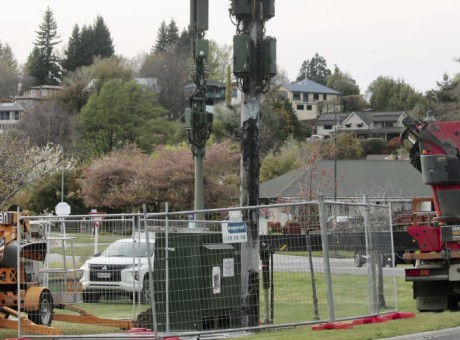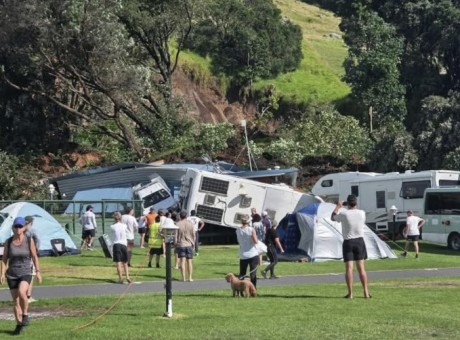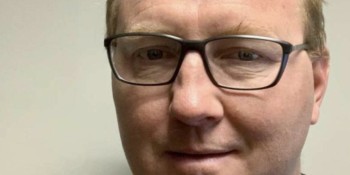Te Whatu Ora apologises for false claims over southern cancer wait lists

Te Whatu Ora has confirmed just 70 percent of patients are getting their their first appointment within a month, not the 90 percent it previously told RNZ.
The health agency claimed three times to RNZ last week that 90 percent of cancer patients in the southern district were being seen on time.
Advocate Melissa Vining protested that many patients were getting letters advising of waits up to three times too long - 12 weeks till a first appointment with a specialist oncology doctor, instead of the targeted four weeks.
Te Whatu Ora has now said only 70 percent of patients are getting their first appointment within a month.
Southern director for hospital and specialist services Dan Pallister-Coward, who made the earlier erroneous claims, backtracked his comments in a statement to RNZ.
"We clarify that the reference of 90 percent of patients starting treatment within expected timeframes refers to the waiting time after a patient has had their First Specialist Appointment (FSA) and before radiation treatment commences.
"We apologise for any confusion it has caused."
On Monday, he made no distinction when RNZ asked him if the district was falling short: "No, I don't think we are. I think the fact that we are delivering 90 percent of that and achieving a number of targets..."
Among the 30 percent not getting a first appointment on time, the worst affected groups are among the patients with the least serious cases for medical oncology, but also among the most serious cases for radiation oncology and haemotology (blood cancers).
Vining said it was still so sad that about 30 people faced a 12-week wait just to get their first appointment and for Te Whatu Ora to "brush it off like that is not a big deal".
However the wait from first-appointment-till-treatment provided better news: "There are currently no patients [out of 61 in total] breaching the target to start treatment," Pallister-Coward said.
All three cancer specialities also have many fewer patients than a year ago, with radiation oncology 105, down from 143; medical 51, down from 72; and haematology 44, down from 98.
Another plus was that Te Whatu Ora Southern aimed to restart its specialist services for brain and most gynaecological cancers, after having to put them on hold months ago due to a lack of senior doctors.
This restart was because it was adding ring-in locum doctors, he said.
There were still staffing issues however, with the permanent radiation oncology unit still set to lose its director of training on August 11, as revealed by RNZ last week.
This would leave the unit with only three seniors, when it should have at least eight.
Another senior had advised they would retire in December 2024.
RNZ has struggled to get accurate and comprehensive information from Te Whatu Ora about the southern district's fight to restore its cancer services.
Second incorrect claim
Pallister-Coward also earlier claimed on RNZ last Monday that Te Whatu Ora had done everything the health watchdog required to improve services, before the deadline of 12 July.
This was also not correct.
It has now emerged that the district changed its letters to patients on Thursday, after Vining protested that the old letters were distressing for patients because some letters included wait times of up to 12 weeks.
All the letters lacked key information such as who a patient could talk to, or what their options as their cancer went untreated.
In April the Health and Disability Commissioner slated the district for its poor communications with patients since 2016 and demanded it do better.
Vining said she had fought for more than four years since her husband Blair died of cancer, to get the letter to patients 'changed, and now that was finally happening.
"The updated letter will be used from 14 July," said Pallister-Coward.
"It informs patients that Southern has received their referral, the expected wait time, and apologises for any delay in providing an appointment."
The new letter included a direct contact number for the patient navigator team of specialist registered nurses and outlined how to get clinical, psychological, and social support, as well as what to do if the patient's symptoms changed, he said.
RNZ asked for a copy of the letter but Te Whatu Ora has not provided one.
Training deficiencies
The district's experience shows the difficulties of training new clinicians, and the hurdle for the government to meet its promises to remedy chronic health workforce shortages.
Te Whatu Ora earlier told RNZ it was "confident" Dunedin Hospital would keep its approval to train junior radiation oncology doctors.
Dunedin Hospital has been struggling to keep its staff. Photo: RNZ / Nate McKinnon
However, its new statement revealed that the assessors wrote to it on 28 June.
"This outlined that they intend to revoke Dunedin hospital's accreditation to train radiation oncologists, due primarily to:
"No current allocated Head of the Department; no defined Director of Training (DoT) following the resignation of the current DoT; an inadequate number of full-time equivalent consultants to provide the necessary supervisor to trainee ratio inclusive of protected time for DoT's and consultants."
WAIT TIMES as at 25 June, % of patients waiting beyond national target time.
Ranked in order of priority 1(top)-4 according to national guidelines:
1. Radiation Oncology
P2 (Priority 2) (target to see within 2 weeks) with 1/3 (33%) waiting longer than this.
P3 (within 4 weeks) 28/89 (31%)
P4 (within 16 weeks) 1/12 (8%)
2. Medical Oncology
AC1 (within 1 week) 0/1 (0%)
AC2 (within 3 weeks) 4/11 (36%)
AC3 (within 4 weeks) 19/38 (50%) Wait times are 4-7 weeks for those not meeting targets.
3. Haematology
P2 (within 1 week) 2/5 (40%)
P3 (within 3 weeks) 5/12 (41%)
P4 (within 4 months) 1/27 (4%) waiting longer than this.





















